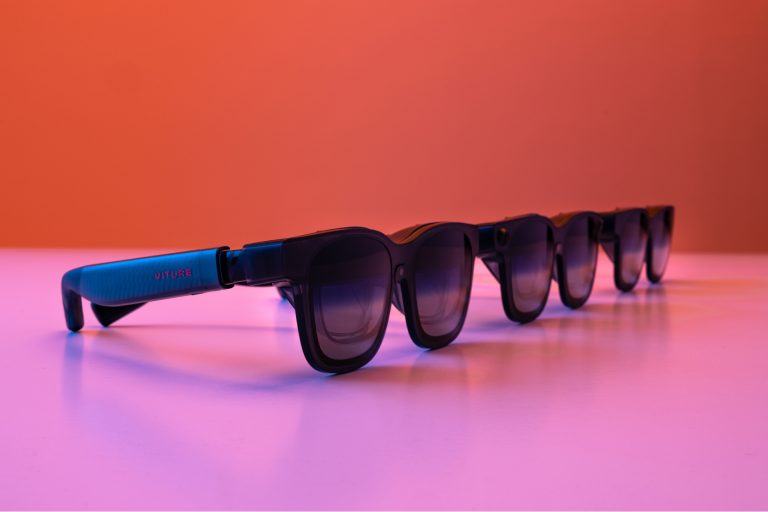
OpenAI, the company that brought generative AI into mainstream awareness, is now working on a radically different kind of wearable AI device. According to internal discussions leaked to the Wall Street Journal, CEO Sam Altman told employees that OpenAI’s next major product won’t be a wearable, a smartphone or even smart glasses. Instead, the company is developing a compact, screenless gadget that’s fully aware of its user’s surroundings, a device small enough to fit in a pocket or rest on a desk, designed to act as a smooth “AI companion” in daily life.
Altman described this device as a “third core device,” joining the ranks of the MacBook Pro and iPhone in terms of personal tech significance. The intent is to move beyond screens and create an AI-native hardware category that’s distinct from anything currently on the market. Unlike wearables or augmented reality headsets, this device won’t need to be worn or viewed, but will instead use contextual awareness to interact with users and their environment.
This ambitious project comes right after OpenAI’s $6.5 billion acquisition of io, a startup founded by legendary former Apple designer Jony Ive, who is now taking a central creative and design role at OpenAI. Ive, celebrated for iconic Apple products like the iPhone and iMac, is expected to bring his minimalist, user-focused design philosophy to the new AI device. Both OpenAI and Ive’s design firm, LoveFrom, are based in San Francisco, and the partnership has reportedly been in the works since 2023.
Altman told staff that the acquisition and the device itself could eventually add as much as $1 trillion in market value to OpenAI, positioning the company as a leader in a new era of AI-powered hardware. He also emphasized the need for secrecy to prevent competitors from copying the concept before its official launch. Ironically, a recording of his remarks was leaked, raising concerns about internal confidentiality and whether future details will be shared openly with staff.
No official launch date or technical specifications have been released, but Altman reportedly claimed that OpenAI aims to ship 100 million units “literally on day one,” setting a new benchmark for hardware rollouts. The acquisition of io is expected to close this summer, pending regulatory approval, and the device could be released as soon as late next year.
Summary
This move by OpenAI signals a major shift in the tech landscape. By stepping away from traditional screens and wearables, OpenAI is betting on a future where AI is more deeply embedded into the fabric of everyday life, potentially redefining how we interact with technology. Altman has previously hinted that voice and contextual awareness will be central to this new device, suggesting it could serve as a “new terminal” for AI, one that might even challenge the dominance of smartphones in the long run.
The partnership with Jony Ive is particularly notable, as his design ethos at Apple was instrumental in making complex technology accessible and desirable to millions. If successful, this device could set a new standard for AI integration in hardware, much like the iPhone did for mobile computing.
While the specifics remain under wraps, the industry is watching closely. OpenAI’s foray into hardware, especially with such high-profile design talent, could spark a wave of innovation and competition across the tech sector.
Other articles you may find interesting





